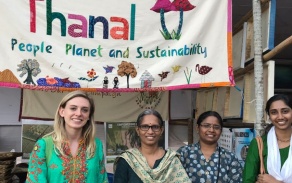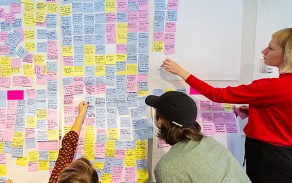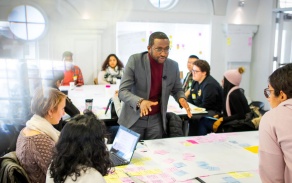Master of Science in International Development and Global Health

Make a world of difference by diving deep into the socioeconomic, environmental, and geopolitical forces that shape health and development disparities. This program prepares students to become nimble problem-solvers poised to challenge inequitable systems and advance sustainable solutions. Through interdisciplinary coursework spanning refugee health, water politics, epidemiology, and more, you'll gain the knowledge and hands-on experience needed to make tangible impacts.
Designed for recent graduates and working professionals across all disciplines, this one-year program equips students for diverse career paths as policy analysts, sustainable development specialists, refugee and migrant health coordinators, climate and health policy advisors, community health and development officers, economic impact analysts, humanitarian advisors, corporate social responsibility analysts, and monitoring and evaluation specialists— at home or abroad.
Join us in reimagining the future of sustainable development and global health equity—because together, we make global health matter.
With this program, UB is reimagining the global health landscape, redefining the way we look at health inequities facing communities today, and the methods and partners we engage to address such inequities.
Emmanuel Frimpong Boamah, PhD
Chair + Associate Professor, Urban and Regional Planning
MSIDGH Program Co-director
Duration of Study
- 3 semester curriculum (36 credit hours)
Cost of Study
Admissions requirements
- Application fee: $75
- No GRE required


